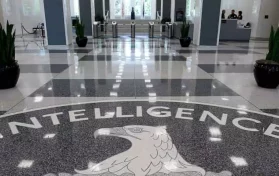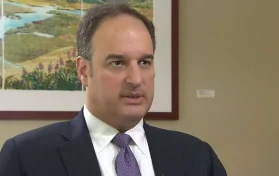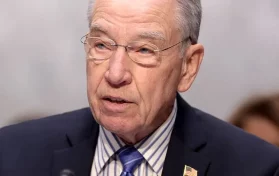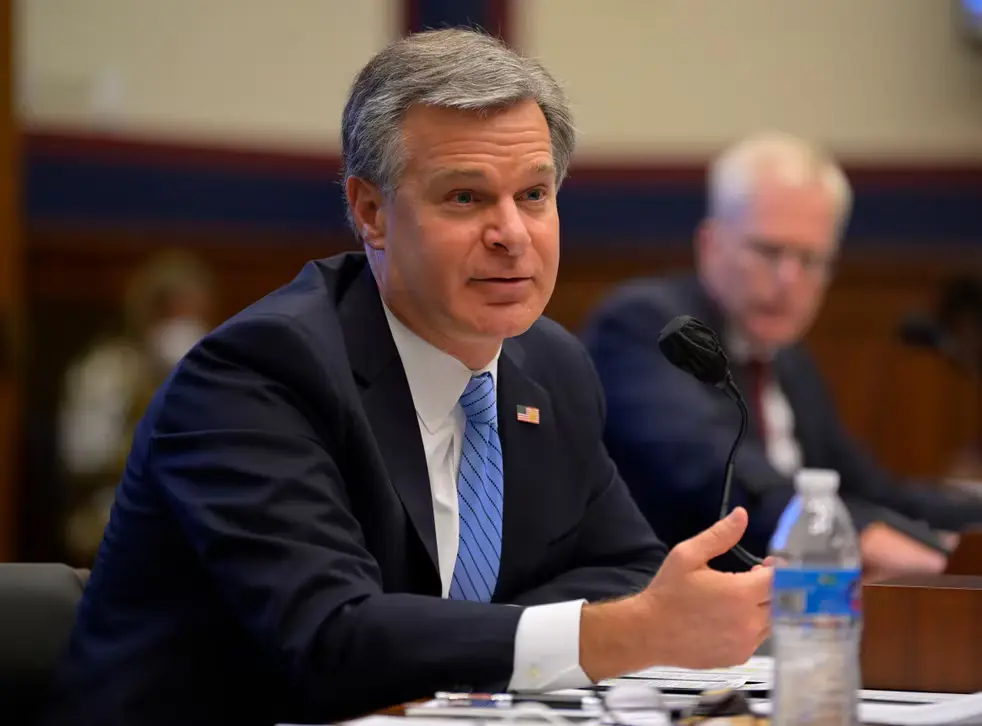
A former Attorney General and attorney for former New Jersey governor Chris Christie, Christopher Wray is the current director of the Federal Bureau of Investigations. He is the eighth individual to hold this position. He was President Donald Trump’s nominee for the position after Trump fired Andrew McCabe. The Senate confirmed him by a vote of 92 – 5, with five Democrats dissenting. Wray promised to bring fairness to the position as well as independence
| Celebrated Name: | Chris Wray |
| Real Name/Full Name: | Christopher Asher Wray |
| Gender: | Male |
| Age: | 55 |
| Birthdate: | December 17, 1966 |
| Birthplace: | New York City, NY |
| Nationality: | American |
| Height: | 5 ft. 9 in. |
| Weight: | 165 lb. |
| Sexual Orientation: | Straight |
| Marital Status: | Married |
| Wife/Spouse | Helen Garrison Howell |
| Children/Kids: | One son, Trip; one daughter, Caroline |
| Dating/Girlfriend Name: | N/A |
| Is Merrick Garland Gay? | No |
| Highest Political Office: | Director of FBI |
| Profession: | Attorney and law enforcement officer |
| Colleges Attended: | Yale University |
| Degrees: | Bachelor’s – Philosophy; Juris Doctor |
| Salary: | $136,435 |
| Net Worth in 2022: | Estimated $23 million |
Biography: Early Life and Family
Christopher Wray is no stranger to law enforcement or serving the public; his father was an attorney who worked in a private practice in New York City. His maternal grandfather was on the Bureau of Air Commerce, and his paternal grandfather was a city manager in Tennessee.
Wray would attend elite schools in his adolescence, including a private boarding school in Massachusetts. He would eventually enroll at Yale University, where he earned honors and a degree in Philosophy. He would also earn a Juris Doctor from the Yale Law School. Like many future Attorneys General, Wray clerked for a member of the United States federal court.
Wray was a member of the crew team at Yale. He was also an executive editor for the prestigious Yale Law Journal.
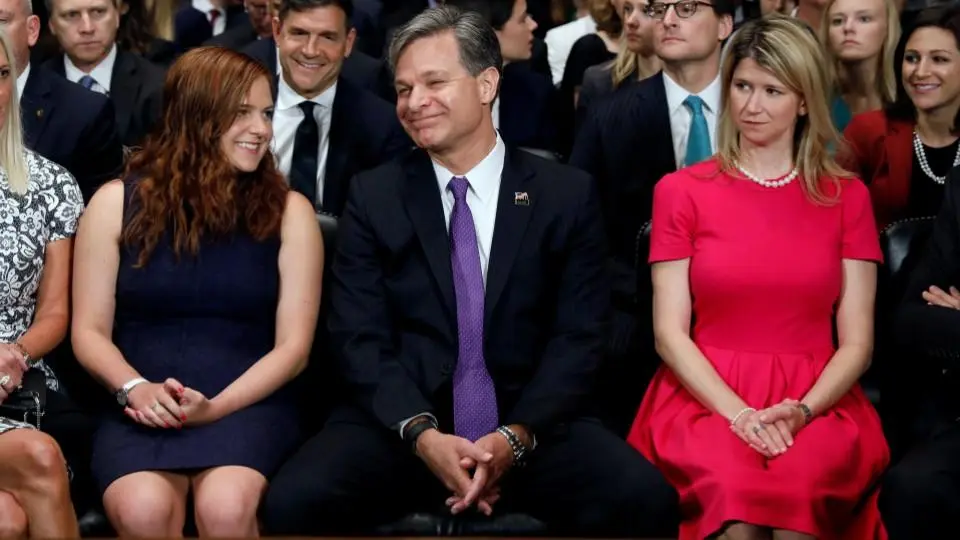
Personal Life
Wray would meet his wife, Helen, while attending Yale. The pair married in 1989, and they have two children together: Trip and Caroline.
Little is known about Wray’s life outside of law enforcement. A former judge under whom Wray clerked, J. Michael Luttig, described Wray in a New York Times article: “He’s not flashy. He’s not showy. He’s understated.”
Former President Donald Trump described Wray as a “man of impeccable credentials” when nominating him to the position of Director of the FBI. A childhood friend and former team mate on the rowing crew said Wray has a “willingness to put in a tremendous amount of effort toward a team goal.”
His family once held an ownership stake in the Atlanta Journal-Constitution.
Age, Height, and Weight
Christopher Wray is 55 years of age. He is 5′ 9″ in height, and he weighs approximately 165 pounds.
Net Worth
Wray has spent much of his life working in public service, but he has also worked in private practice as well. This largely contributes to an estimated net worth for Mr. Wray of around $23 million.
Wray worked at the Washington, DC-based private firm, King & Spalding for a number of years. The salary for partners at this particular firm make approximately $290,000 – $504,000 each year. Wray was able to become a partner in the firm during his time there.
Wray worked at least one high profile case while a partner at King & Spalding, the Bridgegate trial regarding former New Jersey governor Chris Christie.
Wray and his wife own properties in Georgia as well as in Washington, DC. It is possible they have property in New York as well.
Adding to Wray’s net worth is his salaries over the years working in the public government. He was a U.S. Attorney General for several years, and, at the FBI, he makes about $150,000 each year. If he continues to work through 2027, he will receive a hefty raise.
Career Outside of Politics
Wray was a partner with King & Spalding in Washington, D.C. While there, Wray was inadvertently involved in politics as he served former New Jersey governor Chris Christie as an attorney.
On Monday, September 9, 2013, two toll lanes in Fort Lee, New Jersey were closed; locals contended they were not notified of the closures, and they said the closures caused gridlock that were a “threat to public safety.” Some contended that the lanes were closed by Governor Christie in a vengeful ploy against the mayor of Ford Lee, Mark Sokolich, who is a Democrat. While Christie himself was not implicated, some of his staffers were.
Wray represented Christie during the proceedings, and although Christie’s staffers tried to accuse him of knowing about the closures. It is said that, at the time, Christie had aspirations of the presidency or vice-presidency. Christie eventually dropped out of the 2016 presidential race, and many blamed “Bridgegate” for his failure to be nominated by Trump as his 2016 running mate.
Bridgegate was not the only case Wray handled. He worked many cases involving civil litigation as well as white collar crime and corporate investigations of internal corruption.
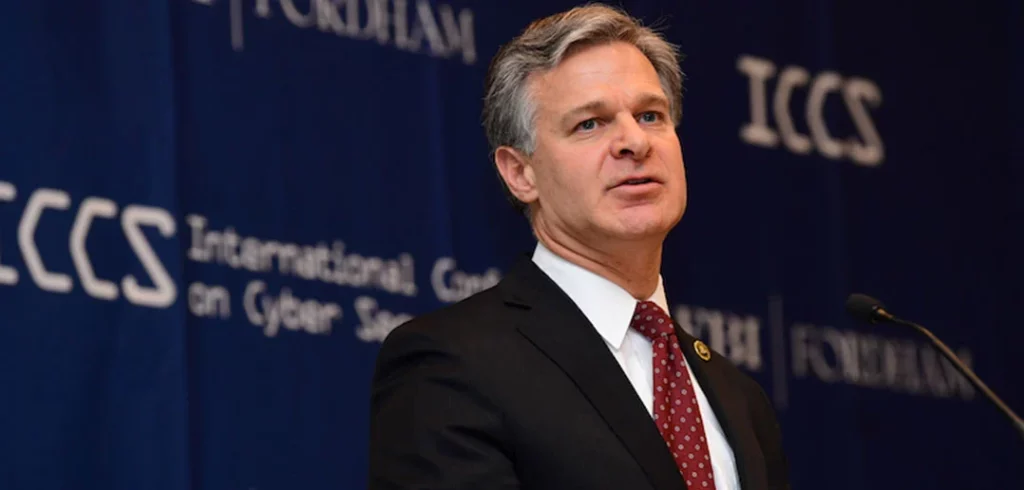
Career in Politics
Wray’s first job as a governmental attorney was in the state of Georgia. He was an Assistant United States Attorney General between 1997 and 2001. He represented the Northern District of Georgia.
By 2001, Wray took a position in the United States Justice Department. He was an Associate Deputy Attorney General; he also worked as a Principal Associate Deputy Attorney General.
In 2003, Wray’s exemplary work led then-President George W. Bush to nominate him to a higher position in the Justice Department. (There are those who point to another Bush nominee to whom Wray has a connection – former King & Spalding partner Larry Thompson worked in the Bush Administration as well.) He was to be the 33rd Assistant Attorney General over the Criminal Division of the department. Wray was confirmed with a vote of 100 – 0, which is a testimony to Wray’s ability to do the job well and without influence.
Wray worked under James Comey during this time, whom Wray would eventually succeed (President Trump fired both Comey and his immediate successor, Andy McCabe. McCabe did not serve very long before Trump fired him. Wray would be confirmed in short order, and with only five votes – all Democrats – dissenting.)
Wray continued to work on white collar crime and internal corporate investigations as he had in the private sector. One of his most notable cases was the Enron scandal, which could be described as a major corporate fraud cases. Wray supervised the Enron Task Force during this time. Some have said the team was over-enthusiastic, and some of the convictions the team won were later turned over on appeal. However, nothing connects Wray directly to these convictions that were overturned. Most historians would say that Wray’s delegation to work on the Enron case – which eventually proved to be one-third of the cases he was involved in – is his “key assignment.”
At the end of 2004, the Justice Department with Wray working the case had charged thirty-three Enron employees and saw 21 of them convicted. Wray’s Enron Task Force recovered $162 million which was redistributed back to approximately 20,000 former Enron employees as well as over 200,000 stock holders.
Although Wray’s career was already quite storied by the time he was nominated for the position of FBI director, he brought to the job decades of experience as well as a promise to keep the FBI independent of political influence. This would be greatly important to both then-President Trump, who claimed James Comey was heavily politically influenced as well as those in the Senate considering his nomination.
Wray sat down with Trump for an initial interview within weeks of Trump’s firing Comey. He soon recommended Wray for the position. Wray was sworn in by August 2, 2017.
However, Wray came under a bit of criticism from the man who nominated him when Wray inferred that Russia could possibly interfere in the 2020 election. Trump would later threaten to fire Wray, but, when his Attorney General William Barr threatened his own resignation, Trump backed down.
Wray continues to serve as FBI director, investigating Chinese threats to security as well as Antifa riots.
Wray worked with some names most Americans know in today’s politics, including Robert Mueller, who investigated the now-disproven Steele Dossier.
Wray’s duties as the Assistant Attorney General put him in charge of more than 600 attorneys at the Justice Department.
Wray’s critics during the nomination for FBI Director pointed to his part into the investigation of 9/11. Some believed this participation would taint him politically, but overall, Wray’s fairness and quiet demeanor garnered him the overall confirmation.
Between 2001 and 2005, Wray prosecuted a number of white collar Federal crimes. Some of these included identity theft and software piracy; however, Wray was an integral prosecutor in the shoe bomb case (in which an individual attempted to bomb a plane with explosives stored in his shoes; no one was hurt – other than the would-be bomber). He looked into multiple cases of political corruption as well as election fraud claims. He investigated the United Nations food-for-oil scandal as well as Chiquita’s bribes to the FARC of Colombia. He also had a hand in expelling some former Nazi guards.



